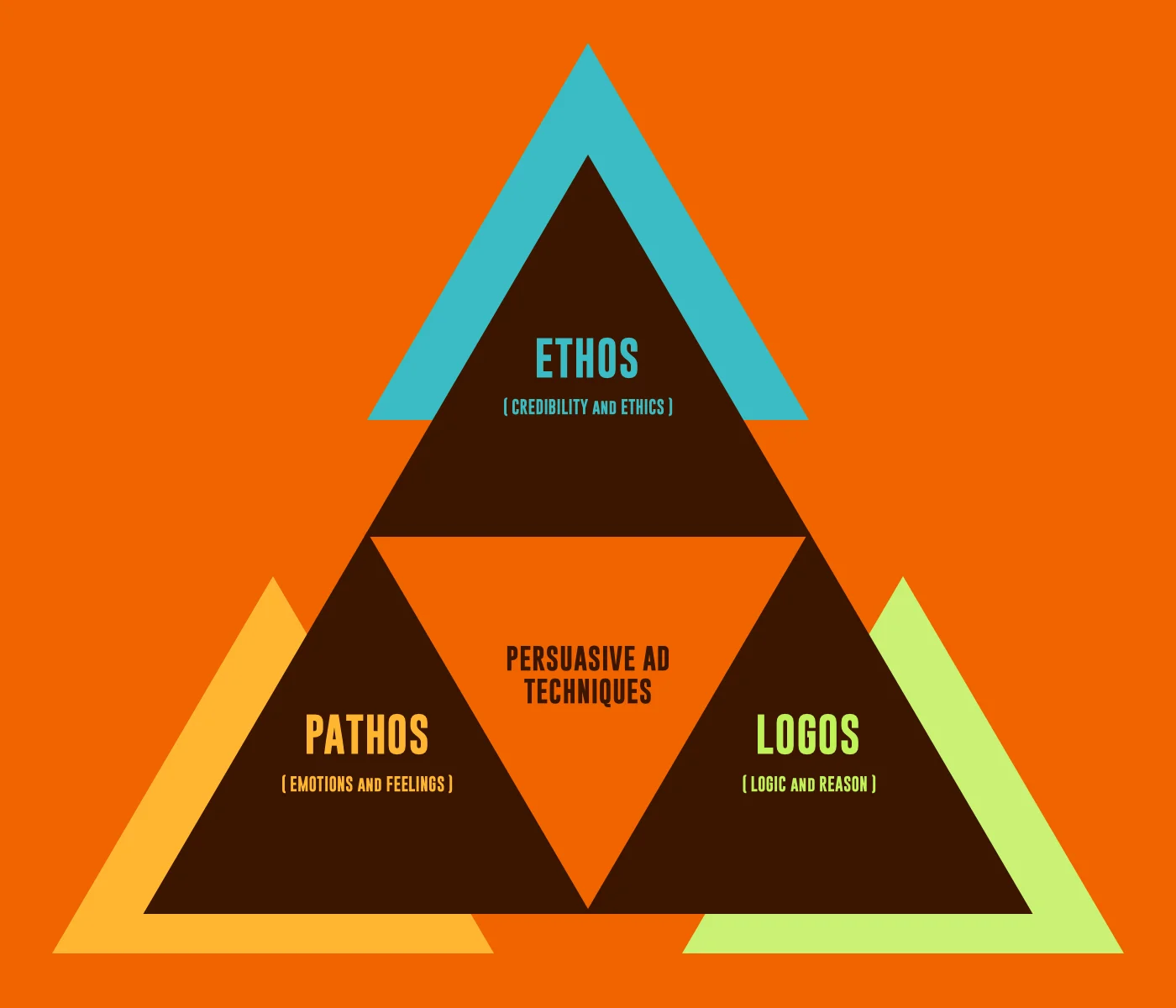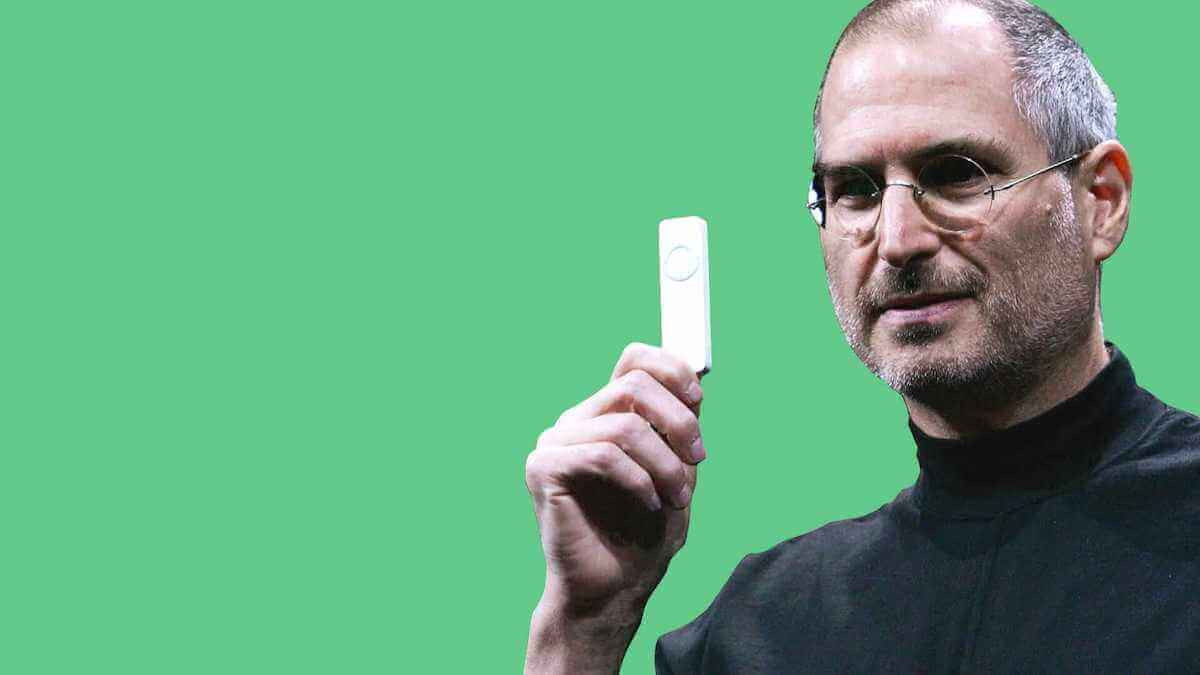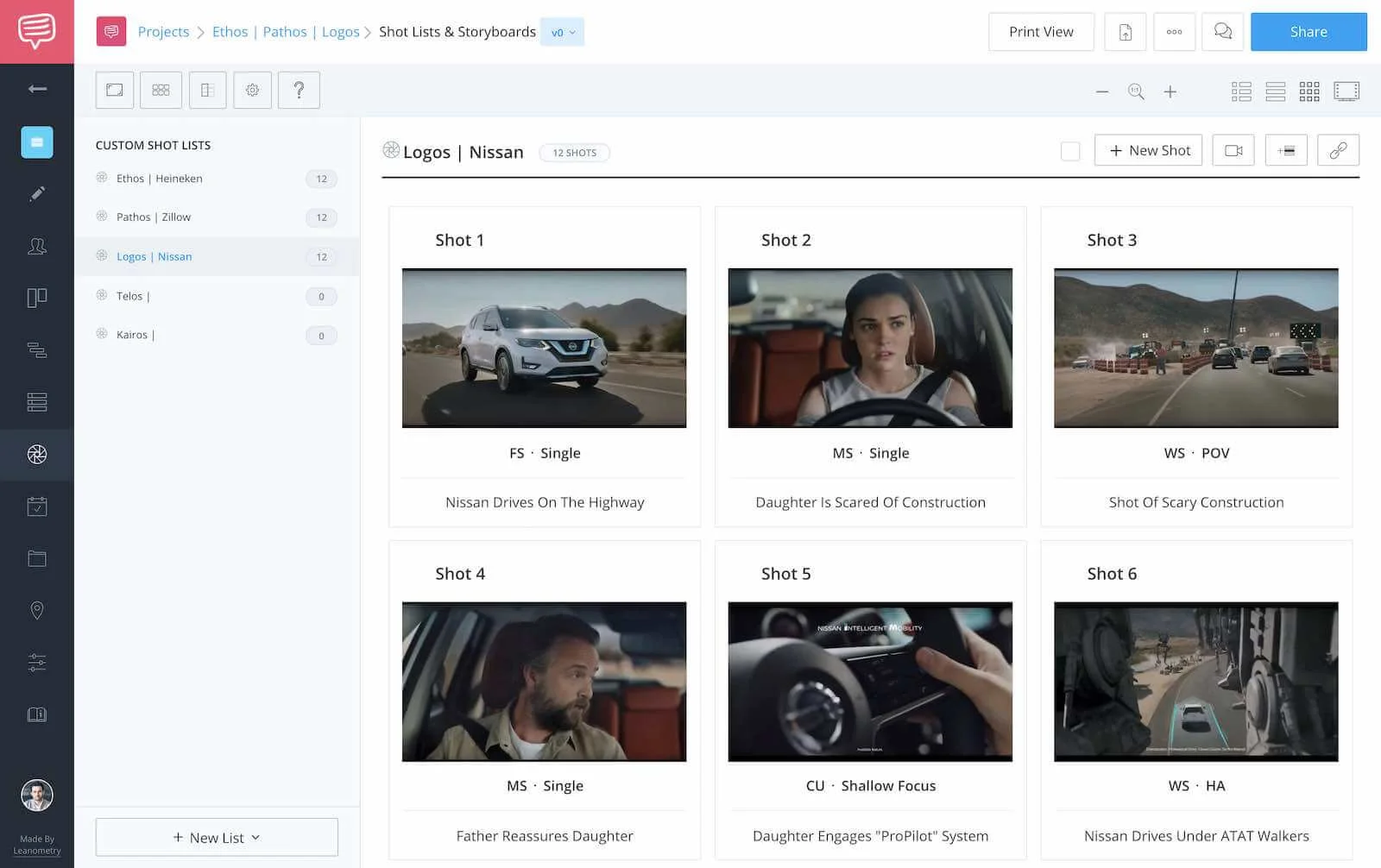Want to get in your audience’s head? Whether you’re making a video, selling a product, or giving a speech, you need to know how to win over the crowd with common sense — to make them think. And one of the most successful ways to achieve this is with something Aristotle called “logos.”
Sounds like a good plan, but how? We’ll give you a logos definition, loads of logos examples, and a solid grasp of heavy concepts. Get ready to produce more compelling content that will convince any audience to do your bidding.
Logos Appeal
Get familiar with logos rhetoric
Clearly and concisely convey to the audience why they should logically buy what you’re selling. Provide evidence in the form of facts, figures, and statistics. Give customers irrefutable proof that your brand or product is the best.
Tall order? Sure it is. But the logos appeal will get you there.
Let's begin with a detailed logos definition.
LOGOS DEFINITION
What is logos?
Logos is the persuasive technique that aims to convince an audience by using logic and reason. Also called “the logical appeal,” logos examples in advertisment include the citation of statistics, facts, data, charts, and graphs.
In Aristotle’s rhetorical triangle, ethos appeals to character, pathos appeals to emotion, and logos appeals to logic and reason. As the “headiest” of the three main rhetorical strategies, logos uses reasoned discourse and logical arguments to convey a point of view and win over the audience.
Logos examples in ads:
- An iPhone commercial that highlights the latest features and specs.
- A Dole fruit juice commercial that hypes vitamin and calorie stats.
- Verizon shows a map to prove it has better coverage than AT&T.
But logos is just one part of Aristotle's rhetorical triangle. It’s a good idea to get well-versed in all three if your goal is to make powerful video content or ads.
These techniques go by other terms as well: rhetorical appeals, persuasive strategies, and modes of persuasion.

Any logos definition has a place in Aristotle’s “rhetorical triangle”
A compelling video, advertisement, or speech ideally draws from all three strategies. But even when a commercial fires on all cylinders, either ethos, pathos, or logos rhetoric stands out as a primary appeal.
In another post, you'll find a general overview of ethos, pathos, and logos but for now we'll do a quick recap.
Ethos convinces the audience by presenting reliability, honesty, and credibility. This often means a respected authority figure or celebrity giving a product or brand a testimonial or endorsement.
For more, brush up your ethos definition and examples.
Pathos aims to persuade viewers by prompting an emotional response. This can be a positive, such the happiness you would feel if you bought, say, a new bike. It can be a negative, as in, “Yikes, I might die if I keep smoking.” And how about guilt? “Adopt this puppy and give it a home.”
For more, get a refresher on the pathos definition with examples.
Logos appeals to logic and reason by using statistics, facts, and figures. Aristotle considered this the biggie. He believed that people are rational, and appealing to the rational mind with data, research, and evidence is the best way to win them over.
In the video below, we can see how ethos, pathos, and logos work together and individually to win over an audience.
A logos definition made clear
Now let’s focus on the logos appeal. We’ll specifically look at logos rhetoric and examples of logos in advertising.
The general idea behind logos rhetoric is to aim for the head, not the heart. Appeal to reason.
Not everyone is reasonable. The logos appeal has its limits. But when it works, nothing works better. Logic and valid facts don’t lie.
Related Posts
LOGOS EXAMPLES
Examples of logos in advertising
With a logos definition laid out, we can move on to some of the best logos commercial examples.
Verizon goes straight for the head, boom, with the logos ad below. We hear a guy’s voice, but don’t even see any people. Forget about examples of ethos, pathos, and logos working together in a commercial. This puppy right here is pure, unadulterated, high-grade logos.
Logos rhetoric works alone to great effect in this commercial
Where’s the celebrity? The well-respected spokesperson? Not here. Ethos is nowhere to be found. How about a cute chinchilla, or a tug at the heartstrings? Wrong ad. If you want pathos, go someplace else.
But if you’re in the mood for a nice hot platter of facts and figures, product specs, and a map with coverage statistics, this logos appeal hits the spot.
If you want another really strong example of Logos is an advertisement, look no further than this recent Nissan Commercial.
This commercial shows a daughter and father driving on a highway. The daughter is about to drive past some scary construction, but then the father instructs her to turn on the "ProPilot" system.
Once the daughter does this, we see a Star Wars battle scene playing out in front of out eyes, and she becomes so distracted that she begin to veer off the road... but guess what? The "ProPilot" system saves her by auto-correcting the trajectory of the car based on the sensor system.
Here's a StudioBinder storyboard for the ad. You'll notice how the angles and shot size change when the "ProPilot" system clicks on:
Logos Example • Shot Listed in StudioBinder
So, how is this logos? Well, the commercial places the daughter in a relatively common situation and uses the machine logic behind having a guided system in the car to keep your distracted children safe.
That’s the logos appeal. An appeal to logic and reason.
Let's move on to our next example.
We saw an ad for a cell phone provider earlier but let's now look at a similar ad from a cell phone manufacturer — another example of logos in advertising from Samsung.
The logos definition on full display
It’s shot beautifully, the production value is top-shelf, the song hits just the right “Note,” so to say — but what really comes through is the logos appeal. The new phone includes a redesigned S Pen. It has a powerful all-day battery. It comes with one terabyte of storage, and expandable memory options.
Boring product specs? Dry facts and figures? Maybe on a spreadsheet, but here, in a flashy logos commercial example, they do the job. This is pure logos appeal once again.
Related Posts
Logos Rhetoric
Use logos in combination
Logos rhetoric doesn’t have to work alone. As mentioned above, a solid video or commercial incorporates all three appeals.
We’ll give you examples of ethos, pathos, and logos coming together in commercials. What does logos mean? Well, it means a lot more if it includes elements of pathos and ethos. The rhetorical triangle is most effective when all three points poke the viewer as a team.
Consider this Old Navy commercial. Watch and notice how it uses a combination of logos, ethos, and pathos at the same time.
Examples of ethos, pathos, and logos working together
Not bad, right? Let’s break down what works.
Julia Louis-Dreyfus plays the hoity-toity mom, so that satisfies ethos. Her celebrity participation means the Old Navy brand gets instant points for respect and credibility.
The commercial is funny, relatable, and connects on an emotional level. Viewers feel for the kid. We’ve all been there, we’ve all felt humiliated by our parents. Pathos? Check.
Finally, logos buttons it up. The cool kids say they got their clothes at Old Navy. The jeans cost $8, and the T-shirt is $4 — facts and figures at the core of the logos appeal.
Another examples of ethos, pathos, and logos working together comes from Microsoft.
This Microsoft commercial exemplifies Logos
Ethos? These kids know their stuff. Maybe they’re not celebrities, but they’re clearly video game experts. They’re lovable and respectable. So ethos gets a check.
Pathos, you bet. More than anything else, this ad gets the emotions stirring. It’s inspiring, touching, and chock-full of what it means to be human.
Finally, the logos definition reveals itself with features and specs of the Xbox Adaptive Controller. What it does, how it works, and why it’s important. A logos appeal, right at home with its pals ethos and pathos.
Define Logos For Yourself
Bring logos into your own projects
So what does logos mean? It’s an appeal to logic and reason that uses facts, data, features, and specs.
It’s called “the rational appeal” for a reason.
And remember that when we use logos rhetoric, we consider the big picture. Examples of ethos, pathos, and logos working together prove effective time and time again, as we’ve shown above.
So, commit the logos definition to memory, rewatch these logos examples, and start to use what you’ve learned.
Learn More Logos Ethos and Pathos
Comparing other techniques
There are many types of rhetorical strategies. To get a full picture on how they work together, or when to use which rhetorical strategies, explore the full guide below.
Explore More Rhetorical Strategies
Each of these rhetorical strategies can be effective in its own way. When combined, their potential effects grow exponentially.
Related Posts
UP NEXT
Explore more rhetorical devices
Logos is a highly effective rhetorical appeal but there is much more to explore, including pathos and telos. Or dive into more rhetorical devices that help construct and support these appeals, including parallelism, litotes, and metonymy. When you've mastered these techniques, your ability to convince and persuade in your writing will be unmatched.

